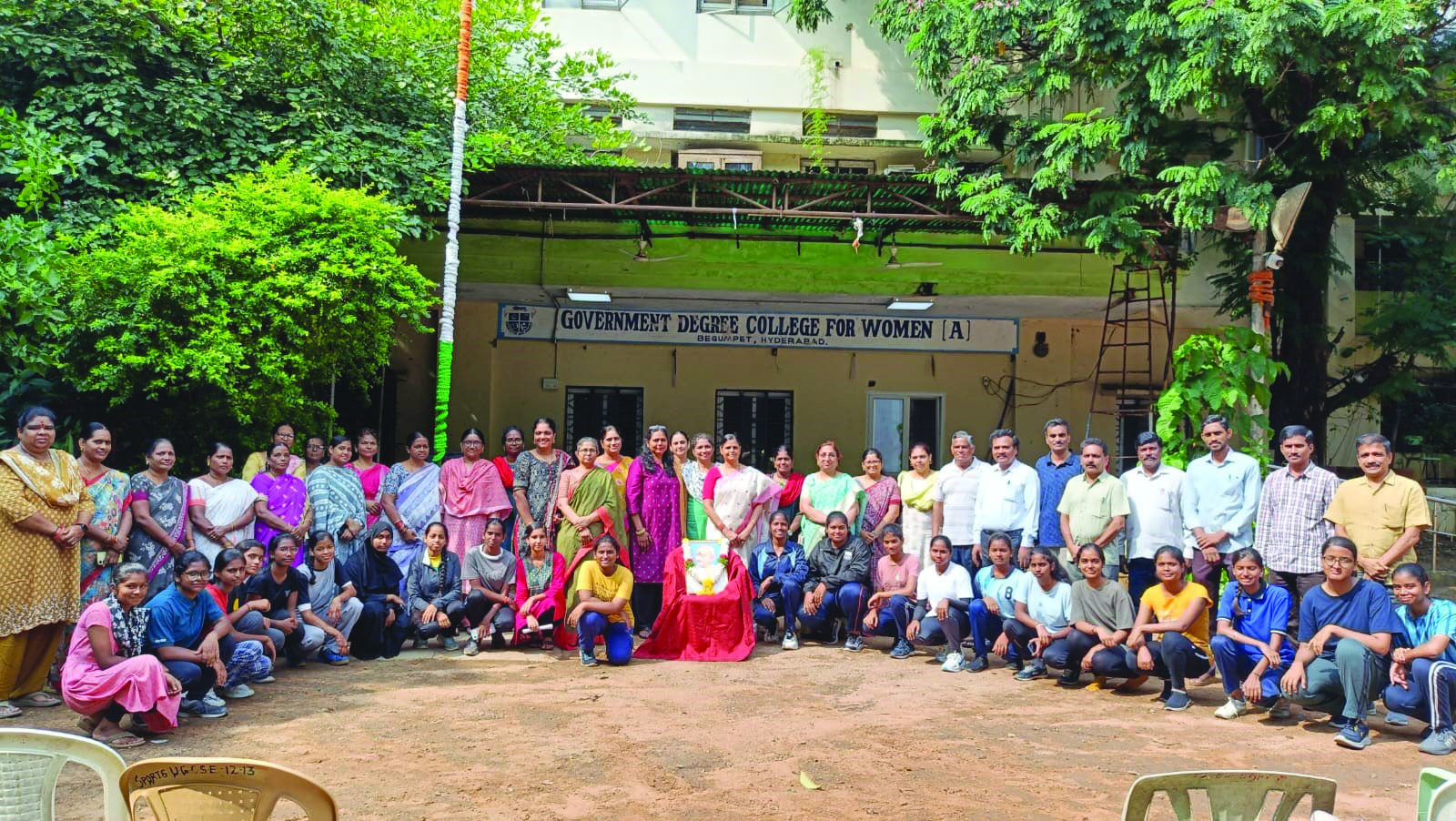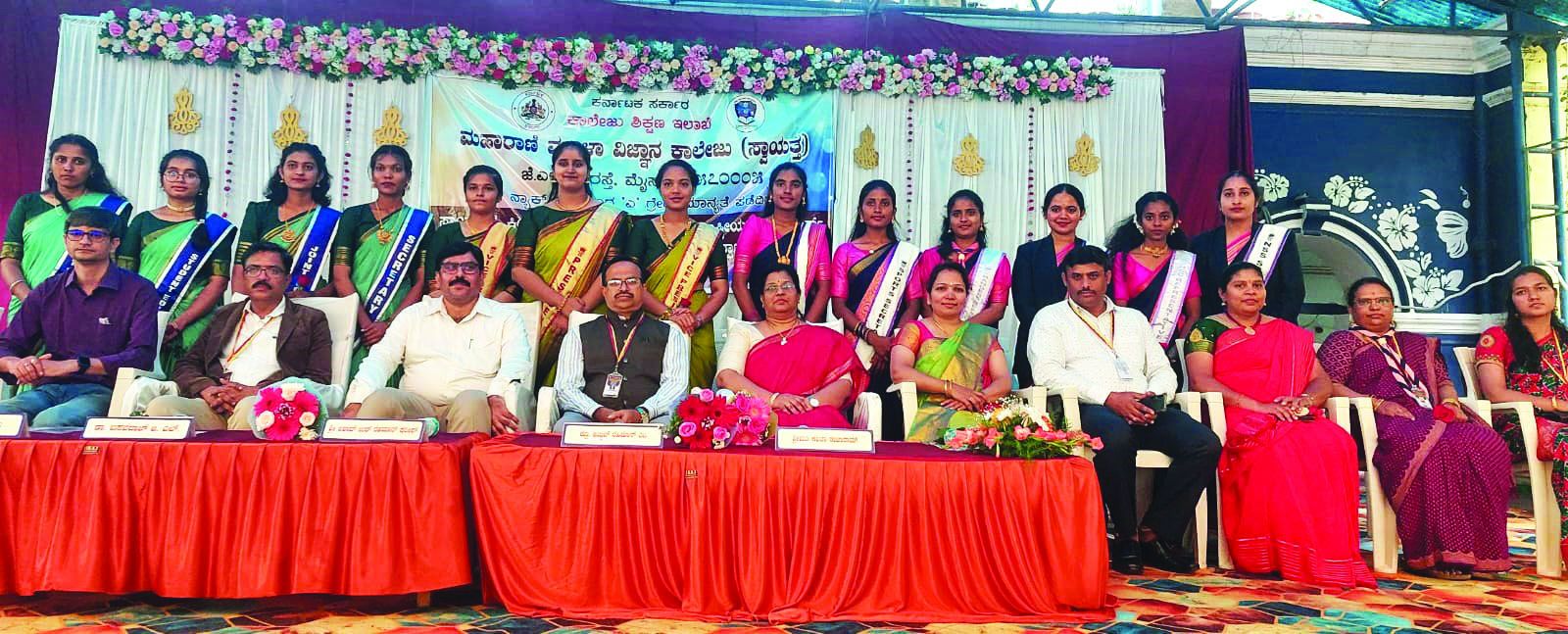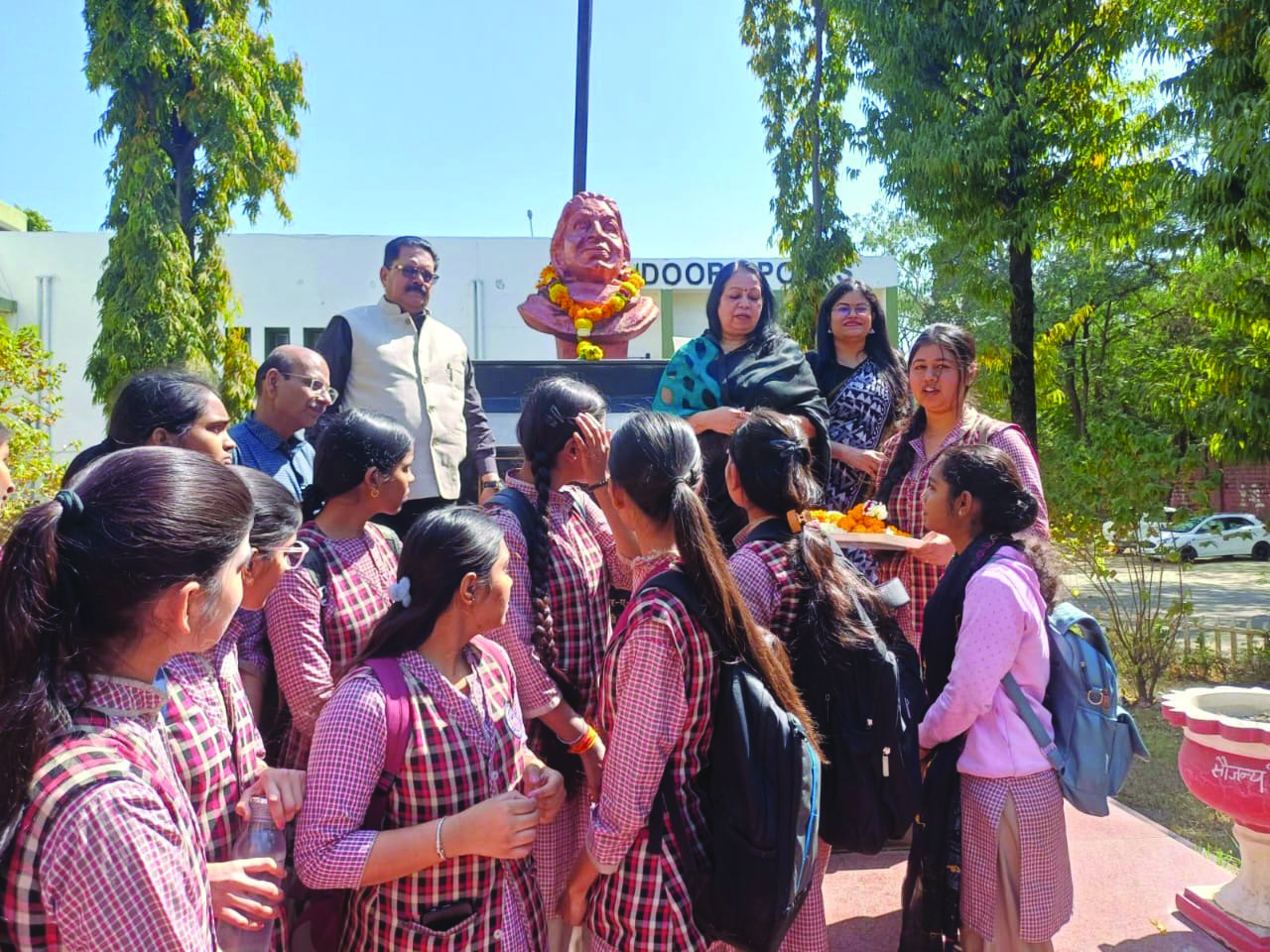Government autonomous colleges which have met the stringent conditions set by UGC for award of autonomous status serve an important national purpose by providing heavily subsidised undergrad education to youth from low-income households. Therefore, the best among them deserve to be celebrated

GDCW’s Dr. K. Padmavathi: close industry connect
India’s 1,222 autonomous colleges are the crown jewels of the national higher education system. These premier higher education institutions, which constitute a mere 2.6 percent of the country’s 47,000 colleges, have passed stringent quality criteria mandated by the apex Delhi-based University Grants Commission (UGC) for award of autonomous status.
According to UGC rules, to qualify for autonomous status, all applicant colleges — government and private — must be of more than ten years vintage and “accredited by either NAAC (National Assessment and Accreditation Council) with minimum ‘A’ Grade or by NBA (National Board of Accreditation of the All India Council for Technical Education) for at least three programmes, or be awarded autonomy by a corresponding accreditation grade/score from a UGC empanelled accreditation agency”.
Autonomous status is a freedom charter for undergrad colleges. It empowers them to review/recast syllabuses; introduce new study programmes especially new ‘self-financing” professional and skilling programmes and conduct their own (rather than common university) exams and notify results. They are also allowed to issue mark sheets, migration and other certificates. Although their degrees are awarded by the affiliating university, the name of the college is permitted to be inscribed on the degree certificate. For employers, these are valuable differentiators.
Of the 1,222 colleges conferred autonomous status by UGC, the majority — 1,048 — are privately promoted, and include high-profile institutions such as St. Xavier’s College, Mumbai and Kolkata, St. Joseph’s and Mount Carmel, Bengaluru, Narsee Monjee and Mithibai colleges, Mumbai and Loyola College, Chennai, among others. However, several low-profile (state) government colleges have also met the rigorous qualifying standards set by UGC and have been conferred autonomous status.
While there’s a quality difference between private and government autonomous colleges — evident in the total scores awarded by this year’s sample respondents to top-ranked colleges in the two categories — the latter serve an important national purpose by providing heavily subsidised undergrad education to youth from low-income households. Therefore since 2021 when the broad category of India’s best Arts, Science and Commerce (ASC) colleges was subdivided into autonomous and non-autonomous categories — for apples with apples comparison — private and government autonomous colleges have been ranked separately.
Again to rate and rank India’s Top 500 ASC colleges, the well-known Bengaluru-based market research company AZ Research Partners Pvt. Ltd interviewed 2,100 knowledgeable sample respondents comprising higher ed faculty, college students, and industry representatives and persuaded them to rate sufficiently well-known colleges on six parameters of tertiary education excellence, viz, competence of faculty, faculty welfare and development, curriculum and pedagogy, industry placement record, infrastructure and quality of leadership/governance.
In the 2025-26 league table of India’s best government autonomous colleges, Government Degree College for Women, Begumpet (GDCW), Hyderabad (estb.1971) has again been voted India #1 followed by Presidency College, Chennai at #2 (#3 in 2024-25) and Maharaja’s College, Kochi, Ernakulam at #3 (#2). This year’s sample respondents have awarded GDCW a total score of 525 (cf. 602 awarded to the private autonomous St. Xavier’s College, Mumbai) with top scores for curriculum and pedagogy, faculty welfare and development, and leadership.
“I am very pleased to learn that GDCW is ranked India’s #1 government autonomous college for the second consecutive year. This is the result of the effort and hard work of our faculty and students. In particular, I am pleased about our top score for curriculum and pedagogy, as this has been our focus area since we were conferred autonomous status by UGC in 2012. Over the years, we have redesigned/introduced several degree programmes in partnership with industry to enhance graduate employability. For instance, for our B.Sc gaming degree programme, we have a collaboration with the Bengaluru-based Lakshya Digital, India’s largest games art outsourcing company. Under this partnership, Lakshya Digital representatives serve on the college’s Board of Studies to design the curriculum, provide student internships and evaluate coursework. In our commerce department, all students must complete a Campus to Finance certificate course to enhance their employability. Moreover, all the college’s 27 departments have integrated Indian Knowledge Systems into their curriculums. Our close connection with industry ensures that our students are readily placed in top companies,” says Dr. K. Padmavathi, principal of GDCW since 2021, who modestly attributes the college’s highest score under the leadership/governance quality parameter to the “entire GDCW team”.
An alumna of Osmania University who has served as head of several government colleges statewide since 1995, Dr. Padmavathi also derives great satisfaction that “GDCW has been able to empower women, most of whom are first-generation learners, both educationally and economically through provision of employment-driven education”. Currently, GDCW has 4,452 women students and 108 faculty on its musters.
A striking feature of the annual EW league table of 84 government colleges conferred autonomous status by UGC is a substantial number of all-women’s colleges ranked among the Top 10. These colleges have not only passed the UGC test for autonomy, but are also conferred top table rank by EW’s 2,100 informed sample respondents. This augurs well for women’s emancipation and improvement of the country’s female labour force participation rate, a metric under which India is low-ranked (41.1 percent, cf. China’s 60 and Vietnam’s 70 percent)
Ranked #6 for the past three years, Maharani’s Science College for Women, Mysuru is promoted to #4 in 2025-26 as has Sri Meenakshi Government Arts College for Women, Madurai to #5 (#6) and Government Holkar (Model Autonomous) Science College, Indore to #6 (#7). Smt. Sarladevi Satishchandra Agarwal Government First Grade College, Bellary has lost ground this year and is jointly ranked #7 (#8) with the Sarojini Naidu Government Girls PG College, Bhopal (#7). The Top 10 table is completed by Yuvaraja’s College, Mysuru at #8 (#4), Government College, Anantapur (Andhra Pradesh) at #9 (#8) and Government VYT PG Autonomous College, Durg at #10 (#9).

Dr. Abdul Rahiman (centre): industry-aligned curriculum
Dr. Abdul Rahiman M, principal of Maharani’s Science College for Women, Mysuru, is delighted that this year’s sample respondents have promoted this 108-year-old college from #6 in 2024-25 to #4 with high scores for faculty competence, curriculum and pedagogy and infrastructure provision. “We are very encouraged by our improved #4 ranking this year. Established in 1917 by the Queen Regent of Mysore, Maharani’s Science College has played an important role in promoting women’s education in Karnataka and is widely respected for providing high-quality undergrad education to women. Our high scores for faculty competence and curriculum and pedagogy are especially satisfying. Of our 121 permanent faculty, 61 have Ph D degrees and 60 have cleared the NET/SLET exams with several guest lecturers also having doctoral qualifications. This highly qualified faculty updates the curriculum annually to ensure it is aligned with industry demands. Faculty and students are supported by robust infrastructure that includes spacious science laboratories equipped with sophisticated equipment, and construction of a new academic building is underway. I am proud that our students are proving their excellence in academics, sports, cultural activities and social service,” says Rahiman.

Dr. Deepti Shrivastava (centre right): path-breaking new study programmes
Dr. Deepti Shrivastava, principal of the Sarojini Naidu Government Girls PG College, Bhopal, is also encouraged by the 55-year-old college’s consistent inclusion in the Top 10 government autonomous colleges EW league table. “I am proud that we have been ranked India #7 for the past three years. I credit this consistent good reputation to our ambitious students, enthusiastic and hardworking faculty, the strength of our interdisciplinary courses and research, and the dedication of every member of our college community, from peon to principal. As reflected in our high score for faculty competence, we are fortunate to have attracted highly competent and dedicated faculty who sharpen their skills by regularly attending professional development programmes. However, I am most pleased with our second-highest score under the parameter of curriculum and pedagogy where we have a good record of introducing innovative path-breaking new study programmes. Recently, we inaugurated a new Tribal Interdisciplinary Courses & Research Centre, which offers courses in tribal and indigenous studies. Additionally, we have signed partnership agreements with UN Women, PAN India, and LinkedIn, to introduce new courses to enhance student employability. And through an MoU with IIT-Delhi, we provide AI and Python training to our women students. In the next few months, we will be launching Classroom to Corporate Cell and Gender Equality Centre. We are an ambitious institution deeply committed to educating and skilling women for top-level corporate positions,” says Dr. Shrivastava. Currently, Sarojini Naidu Government Girls has an enrolment of 6,400 women students mentored by 100 faculty.
Beyond the Top 10, most institutions are ranked a notch or two below their 2024-25 rank in this year’s EW league table of 84 sufficiently well-known government autonomous colleges. It’s pertinent to note that this league table is dominated by colleges promoted by the governments of Madhya Pradesh, Telangana, Odisha, Karnataka and Tamil Nadu. It’s also disturbing that the populous states of West Bengal, Maharashtra, Gujarat, Bihar, and Uttar Pradesh don’t host sufficiently reputed government autonomous colleges — institutions evaluated by less than 25 sample respondents are eliminated from the EW rankings — for inclusion in the league table of India’s Best Government Autonomous ASC Colleges 2025-26.
A striking feature of the EW league table of 84 government autonomous colleges is a substantial number of all women’s colleges ranked among the Top 10
It’s pertinent to note that this league table is dominated by colleges promoted by the governments of Madhya Pradesh, Telangana, Odisha, Karnataka and Tamil Nadu
With Aditi Maheshwari & Reshma Ravishanker
Also read: EWIHER Top 500 Arts, Science & Commerce Colleges Rankings 2025-26























